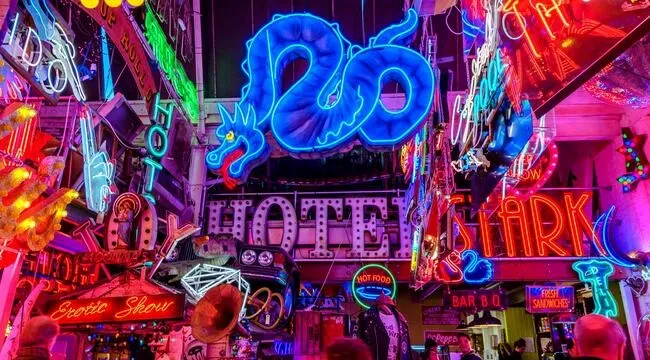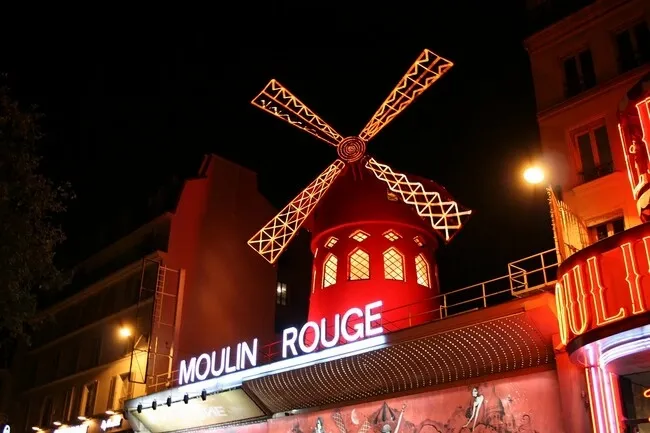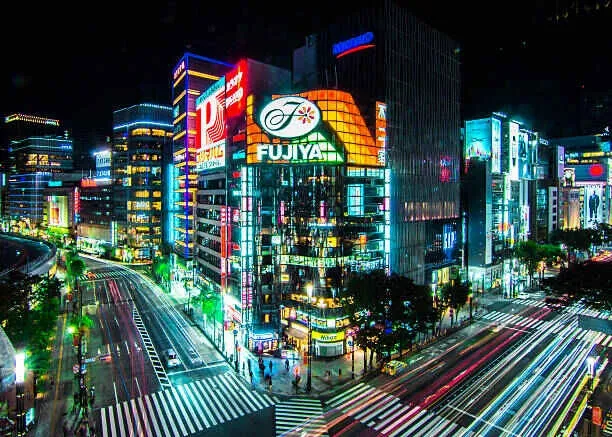Famous Neon Signs: Exploring Iconic Glow Through History And Innovation
Step into a mesmerizing world of iconic neon signs in our latest blog post. Delve into the fascinating history of innovation and culture impact that these luminous creations have inspired. Learn how they have added color to cityscapes and captured imaginations all around the world for over a century.

Key Takeaways
- There are many famous neon signs, such as the Las Vegas Welcome Sign and TokyoÔÇÖs Ginza neon displays.
- These luminous icons have shaped cityscapes and captivated global imaginations for over a century.
- Modern innovations have led to more versatile and cost-effective LED neon signs that offer a comparable aesthetic with various additional benefits.
- We supply high-quality custom LED neon signs that you can design to match your aesthetic or recreate iconic neon signs however you like.
Table of contents
-
15 Famous Neon Signs
-
Which Iconic Neon Signs Are Must-Sees?
-
How Did Neon Signs Originate And Evolve?
-
What Is The Oldest Neon Sign?
-
Why Are Neon Signs Disappearing?
-
What Led To The Decline And Revival Of Neon Signs?
-
Where Can You Find Historical Neon Signs And Museums?
-
Where Are The Best Neon Signs Located Across The U.S.?
-
Who Was The Neon Artist In The 1960s?
-
Are Real Neon Signs Still Made?
15 Famous Neon Signs
There are many famous neon signs around the world. Here are some of the most well-known:
- Las Vegas Welcome Sign: This symbolizes the vibrant nightlife and entertainment of Las Vegas.
- Times Square Coca-Cola Sign: Located in NYC, this iconic neon sign represents the hustle and bustle of Times Square.
- Moulin Rouge Windmill: This Parisian landmark embodies the spirit of nightlife in Montmartre.
- Piccadilly Circus Lights: The neon hub or London that symbolizes British urban life and advertising.
- God’s Own Junkyard: A London art installation that is known for its eclectic neon display.
- Neon Boneyard Signs: The Las Vegas museum that preserves historic neon signs to showcase the city’s evolution.
- Hong Kong Neon Signs: Kowloon is known for its neon-lit streetscape, synonymous with Asian nightlife.
- Tokyo Ginza Neon Signs: A showcase of Japan’s modernity and consumer culture.
- Route 66 Neon Signs: This historic US highway features nostalgic signs that define American roadside culture.
- Rainbow Room Sign: An NYC landmark celebrated for its timeless elegance and neon marquee.
- Wrigley Field Marquee: Chicago’s eponymous baseball sign is a beacon for sports fans.
- Museum of Neon Art: A famed LA institution that celebrates neon’s cultural and artistic significance.
- Barcelona’s Las Ramblas Signs: Colorful neon that makes up a vibrant Spanish nightlife scene.
- Sydney’s Kings Cross Coca-Cola Sign: This Australian icon is synonymous with the city’s nightlife and tourism.
- Osaka’s Neon Alley: This is Japan’s neon capital, famed for its futuristic cityscape and vibrant nightlife.
We can create personalized neon signs with popular quotes like custom ‘Netflix and Chill’ neon signs to enable you to tap into the same vibrant culture.

Which Iconic Neon Signs Are Must-Sees?
There are some neon signs that simply must be seen if you are an enthusiast. These signs have important historical or cultural significance, so let’s look at the top choices and what makes them stand out:
- Las Vegas Welcome Sign: This is a timeless symbol of entertainment on the Vegas Strip.
- Times Square Coca-Cola Sign: In NYC’s heart, this sign epitomizes the energy of Times Square.
- Moulin Rouge Windmill: This Parisian landmark in Montmartre embodies nightlife allure.
- Piccadilly Circus Lights: London’s vibrant hub features one of the world’s most iconic advertising displays.
- God’s Own Junkyard: You’ve never seen an artistic neon installation quite like this eclectic London feature.
These signs define their cities, creating luminous displays that blend history, culture, and innovation. And you can recreate them with our custom LED signs if you want to.
What Neon Signs Are Worth Money?
Neon signs can be valuable if they have historical significance, exceptional craftsmanship, or aesthetic appeal. Factors that contribute to their worth include:
- Rarity
- Iconic design
- Cultural relevance
For instance, vintage signs from famous establishments or limited-edition designs have been known to fetch high prices at auction.
One example is the ‘Flying A’ neon sign that originates from the mid-20th century. We have seen variants of this iconic neon light sell for as much as $83,000 due to its luminous charm and artistic value.
Recreate a famous neon sign with our custom service
Work with us to create a custom ‘Welcome To Fabulous Las Vegas’ neon sign, or choose a different famous design, and enjoy an iconic look in your home or business.
How Did Neon Signs Originate And Evolve?
Neon signs originated in the early 20th century through the innovation of engineer Georges Claude. He first demonstrated the ability of neon gas to emit light in 1910. The first neon light was subsequently built in Paris in 1912, laying the foundation for their evolution.
By the 1920s and 1930s, neon signs were a popular advertising feature and adorned cities all over the world with their captivating designs and vibrant colors. Their evolution developed with advancements in tube bending techniques to allow for intricate shapes and letters.
In recent times, LED technology has become the more popular choice, but there is still a place for traditional neon signs with their nostalgic appeal and artisan craftsmanship. You will find them and their LED counterparts throughout urban landscapes, capturing attention with their luminous glow.
How Did Neon Signage Rise In Popularity?
Neon signage surged in popularity through the 1920s and ‘30s - the ‘Golden Age of Neon’. This era coincided with rapid urbanization, industrialization, and the growth of consumerism. Many iconic neon signs arose during this time, offering businesses a dynamic way to attract attention amid cityscapes.
The luminous presence of these signs illuminated streets and symbolized progress and modernity. The vibrant neon displays became synonymous with urban nightlife and commercial districts. With advancing technology and the need for effective advertising, neon signage became extremely prominent during this pivotal period of the 20th century.

What Is The Oldest Neon Sign?
The oldest known neon sign that is still in operation is the ‘Packard’ neon sign in Warren, Ohio. Installed in 1936, its original purpose was to advertise the Packard car dealership, and it has been meticulously preserved as an example of early neon technology.
This sign is celebrated for its historical significance, standing as a milestone in urban signage and advertising. With its enduring presence, it highlights the longevity of neon as a medium, showcasing nostalgic value and the durability of the technology when properly maintained.
The packard sign is an enduring reminder of a bygone era when neon signs were a public fascination. It reminds us that they were once an integral part of urban landscapes worldwide.
Want a neon sign with a famous brand logo?
Design your own custom Harley Davidson neon signs or choose a different brand and use our online service to bring it to life with ease.
Learn more hereWhy Are Neon Signs Disappearing?
There are several factors contributing to the decline of neon signs:
- Regulatory challenges: Neon signs use lots of electricity, and restrictions on energy consumption combined with environmental concerns around using neon gas have limited their appeal.
- Technological advances: Progress in LED technology has yielded more cost-effective alternatives with a similar visual impact and greater energy efficiency.
- Economic pressures: Neon signs are costly to run, maintain, and repair compared to modern alternatives, so many businesses choose other options.
Changing urban development trends and aesthetic preferences favor minimalist designs over the kitschy appearance of neon. Nevertheless, the nostalgic charm of these iconic signs remains, and there is an appetite for preserving their historic significance.
Why Were Neon Signs Banned?
Neon signs have been banned in some areas at different points in time, often due to concerns around:
- Energy consumption
- Light pollution
- Aesthetic preferences
Restrictions are most common, with cities imposing them to control brightness and maintain architectural harmony. Environmental regulations around the use of mercury have contributed to bans for some reasons, as questions arose about whether neon signs are dangerous.
Restrictions and bans have impacted the neon sign industry, raising new challenges for neon artists and manufacturers. However, in some cases, these bans have driven innovation in alternatives like LED technology, which offers comparable aesthetics with lower energy usage and maintenance.
What Led To The Decline And Revival Of Neon Signs?
There was a decline in neon sign usage in the late 20th century, stemming from the rise of cheaper and more energy-efficient LED alternatives. Urban regulations and changing aesthetic preferences also played a role in this decline.
In recent years, there has been a revival of interest in neon signs. Their nostalgic appeal and distinctive aesthetic have driven demand for modern applications like:
- Artistic installations
- Retro-themed decor
- Bespoke signage for businesses
Innovations like flexible neon tubing and more eco-friendly designs have enhanced their appeal, bringing contemporary sustainability to the traditional craftsmanship. This resurgence suggests a renewed appreciation for neon’s unique glow.
Choose a popular shape and create your custom LED neon sign
Work with us to create custom heart neon sign or choose other popular shapes and designs to create an iconic lighting installation for your space.
Where Can You Find Historical Neon Signs And Museums?
You will find various locations around the world celebrating the legacy of famous neon signs. Here are some examples:
- The Neon Museum, Las Vegas: This preserves iconic signs from the city’s history, showcasing their cultural impact.
- The American Sign Museum, Cincinnati: Here you will find a vast collection of signs, including neon, highlighting their importance in American business and pop culture.
- The Neon Museum, Warsaw: This showcases neon signs as symbols of Cold War-era urban landscapes.
The preservation of these neon signs maintains cultural heritage and an understanding of the evolution of advertising. These museums are educational resources about neon sign history, illustrating how these vibrant creations have shaped global urban environments.
Where Are The Best Neon Signs Located Across The U.S.?
Across the USA, famous neon signs abound. Let’s look at some unmissable examples:
- New York City: In Times Square, you will find dazzling displays like the iconic Coca-Cola sign.
- Los Angeles: Here you will find the Museum of Neon Art, showcasing local favorites like the Hollywood Sign.
- Chicago: On Route 66, the Chicago corridor features historic neon signs.
- Miami: The Art Deco District showcases neon-lit buildings along Ocean Drive.
- Las Vegas: This city is synonymous with extravagant neon displays like the Strip and Fremont Street.
Explore these cities to unveil their unique cultural heritage and take in the enduring allure of neon signs in American cities. And explore how you can recreate these iconic creations with our custom aesthetic neon signs.
Want an iconic pop culture reference in your space?
With our online service, you could create a custom batman neon sign or choose another famous pop culture symbol and let us bring it to life in vibrant color.
Create yoursWho Was The Neon Artist In The 1960s?
Neon artistry flourished in the 1960s with notable figures like Dan Flavin, the pioneer of minimalist neon installations. One of his most famous works, ‘Monument for V. Talin’, used fluorescent light to create geometric compositions.
Bruce Nauman was another influential artist who created conceptual pieces like ‘The True Artist Helps the World by Revealing Mystic Truths’. His installations employed text and language, pushing the boundaries of traditional neon sign usage.
Neon lighting had an influence on this decade, and the best artists took innovative approaches to light, space, and communication.
What Photographers Use Neon Lights In Their Work?
Several photographers have embraced neon lights to enrich their work, hanging neon signs on backdrop items to enhance their compositions. Here are a few examples:
- Todd Hido: Captures nocturnal urban landscapes with evocative neon-lit scenes to convey loneliness and misery.
- Olivia Bee: Creates dreamy, youthful portraits by employing neon to bring vibrant hues and atmospheric ambiance.
- Tyler Shields: Known for his provocative imagery, he uses neon to amplify the drama and intensity of his subjects.
The allure of neon lies in its vivid colors and dramatic lighting. It enhances visual storytelling on photography with compelling contrasts and captivating moods.
Are Real Neon Signs Still Made?
Real neon lights are still made today, but they often include modern technological advancements. Traditional neon signs are crafted using glass tubes filled with neon gasses that emit light when electrified. However, newer methods like LED neon have grown in popularity as they offer superior energy efficiency and durability.
Despite this shift, there is still a demand for authentic neon signs. They offer nostalgic appeal in contemporary settings, and their artistic craftsmanship and vibrant glow are coveted. Artisans skilled in glass blending and neon tube fabrication may be fewer and further between, but they still preserve the traditions of neon signage, adapting to modern aesthetics and functional requirements.

What Are The Innovations In Neon Sign Technology?
Recent innovations in neon sign technology have led to advancement in both traditional and LED neon signs. Traditional signs still use glass tubes filled with gas, but there have been improvements in gas purity and electrode materials for greater brightness and longevity. LED neon, meanwhile, offers flexibility, energy efficiency, and a wider range of colors without the breakability of glass tubing.
When considering LED neon vs glass neon lights, consider how these advancements allow designs to cater to diverse aesthetic preferences and environmental considerations. Both technologies continue to evolve, but LED neon is gaining real popularity for its versatility and cost-effectiveness.
Frequently Asked Questions About Famous Neon Signs
What Was The First Neon Sign?
The first neon sign built on the work of Georges Claude and was installed in Paris in 1912, triggering a new trend in advertising and urban scenery that would grow throughout the 20th century.
Why Did Neon Signs Decline In Popularity?
Shifting aesthetic preferences and the emergence of the more cost-effective, energy-efficient LED alternatives contributed to the decline of traditional neon signs in popular culture.
